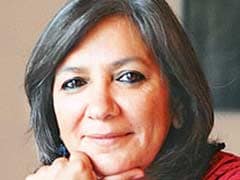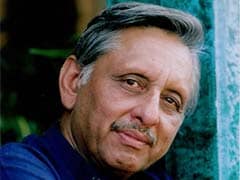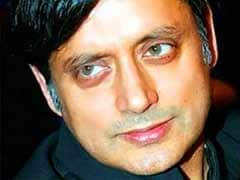- Home/
- In PM Modi's Speech, A Reference To 2014 Article On India's Trade Practices
In PM Modi's Speech, A Reference To 2014 Article On India's Trade Practices
Highlights
- PM Modi said that the Goods and Services Tax reforms would usher in a countrywide "GST Bachat Utsav"
- In his speech he recalled a 2014 Financial Times article on India's trade practices
- The article suggested a nationwide general sales tax
Prime Minister Narendra Modi today said that the Goods and Services Tax reforms would usher in a countrywide "GST Bachat Utsav," benefiting poor, middle-class, farmers, traders, and entrepreneurs alike. In his speech, he recounted the early days of his prime ministership in 2014, recalling a foreign newspaper column that had explored India's trade practices back then.
The Prime Minister's reference was to an article published in the Financial Times by veteran South Asia correspondent Victor Mallet. Titled 'Notebook: India is a nation in need of a trade deal with itself', the 2014 piece described the extraordinary logistical hurdles companies faced in moving goods within India -- some so complex that one French technology firm reportedly found it cheaper to ship components from Bengaluru to Europe and then back to Hyderabad, a journey of several thousand kilometres, rather than transport them the 570 kilometres overland between the two Indian cities.
"Friends, this was the situation at that time due to the complexities of taxes and tolls," PM Modi said. "At that time, millions of such companies, along with millions of countrymen, faced daily problems due to the maze of various taxes. The increased expenses incurred in transporting goods from one city to another were borne by the poor, and customers like you were charged. It was essential to free the country from this situation."
Mr Mallet's article, which PM Modi cited, read: "One French technology company, according to Les Echos, the French business newspaper, sometimes finds the most cost-effective way to send parts from Bangalore to Hyderabad 570km away is to dispatch them from Bangalore to Europe and then back from Europe to Hyderabad."
He went on to write about the inefficiencies caused by clogged roads and limited freight rail, as well as the burden of multiple state-level taxes and checkpoints.
"At present the cost of logistics for Indian manufacturers is often more than the entire wage bill-more than double, in the case of textiles-and far higher as a percentage of sales than for international competitors. Halving the delays caused by roadblocks and other stoppages would cut freight times by 20-30 per cent and logistics costs 30-40 per cent, says the World Bank," Mr Mallet wrote.
The article pointed to a solution by suggesting a nationwide general sales tax, a proposal that had circulated for years but never been fully implemented. Quoting Onno Ruhl, then the World Bank's country director, Mr Mallet wrote: "India actually has an opportunity to conclude a free-trade agreement with itself."
Cut to 2017, PM Modi's government introduced the Goods and Services Tax.
GST Utsav
In his address, PM Modi declared that from September 22, coinciding with the start of Navratri, consumers would begin to feel the impact of the latest reforms, dubbed GST 2.0.
"From tomorrow, you will be able to buy your favourite items with ease. This is like a GST saving festival for every Indian," the Prime Minister said.
Calling it a "festival of savings," he added: "Next gen GST reforms being implemented from tomorrow, it is like 'GST saving festival'. The poor and the new middle class are getting double benefits after the GST rate cuts."
................................ Advertisement ................................
Opinion
MoreOpinion: China Has Helped India's Cause With TrumpMihir Sharma, Bloomberg
Thursday June 29, 2017Very little was expected in India from Prime Minister Narendra Modi's visit to the U.S., and for good reason: Modi had gone out of his way to cultivate a personal relationship with Barack Obama, including famously pouring out a cup of tea for him and the cameras when Obama visited India.
Opinion: Modi's US Speech Was Letter Perfect, Ticked Off Every BoxAshok Malik
Friday June 10, 2016Without taking recourse to the old wailing sheet and cribbing to everyone about Islamabad, Modi has devised a mechanism to shape the debate to India's advantage.
Opinion: Modi Ignored Advice To Make Obama Squirm. It Has Paid Off.Jyoti Malhotra
Saturday June 04, 2016The visit to the US in the coming week, in fact, brings Obama's relationship with both Modi and India full circle.
Blogs: कादम्बिनी के कीबोर्ड से : क्या परमाणु करार पर पीछे हटे हम?
Sunday February 08, 2015असल में परमाणु रिएक्टरों में हादसे की सूरत में जो हर्जाना होगा, वह रिएक्टर चलाने वाले को यानि ऑपरेटर को देना होगा। कानून में यह प्रावधान है कि अगर ऑपरेटर चाहे तो वह सामान और ईंधन आपूर्ति करने वाले पर हर्जाने के लिए दावा कर सकता है। लेकिन यहां पर समझने वाली बात यह है कि ऑपरेटर कौन होगा।
Opinion: Mani-Talk: Modi is Turning Us into America's New PakistanMani Shankar Aiyar
Thursday February 12, 2015In "Cold War II", battlefield could be India, writes Mani Shankar Aiyar.
Opinion: Obama Had Pointed Message for Modi 2.0Shashi Tharoor
Wednesday January 28, 2015Clear warning that PM will fail if he reverts to Modi 1.0, writes Shashi Tharoor.
Opinion: What Pakistan Makes of Obama-Modi ChemistryMehr Tarar
Tuesday January 27, 2015Acceptance of Modi's goal-oriented leadership, writes Mehr Tarar.









